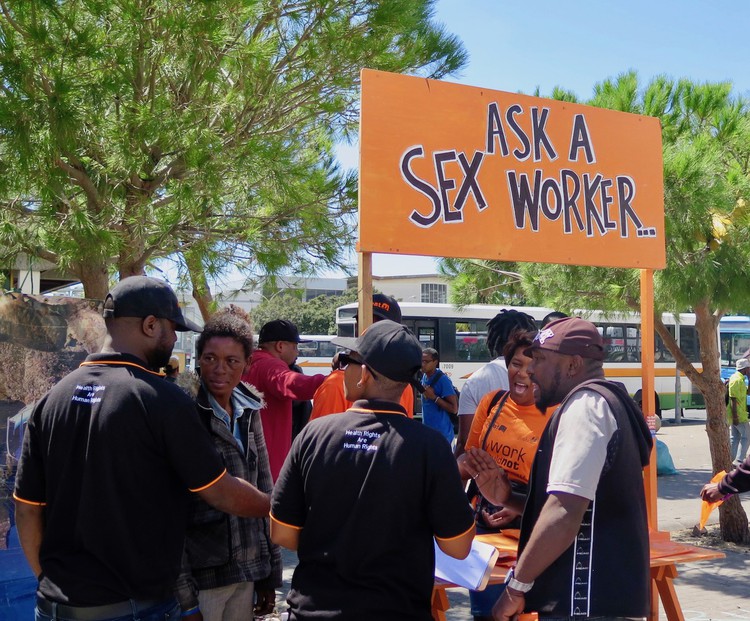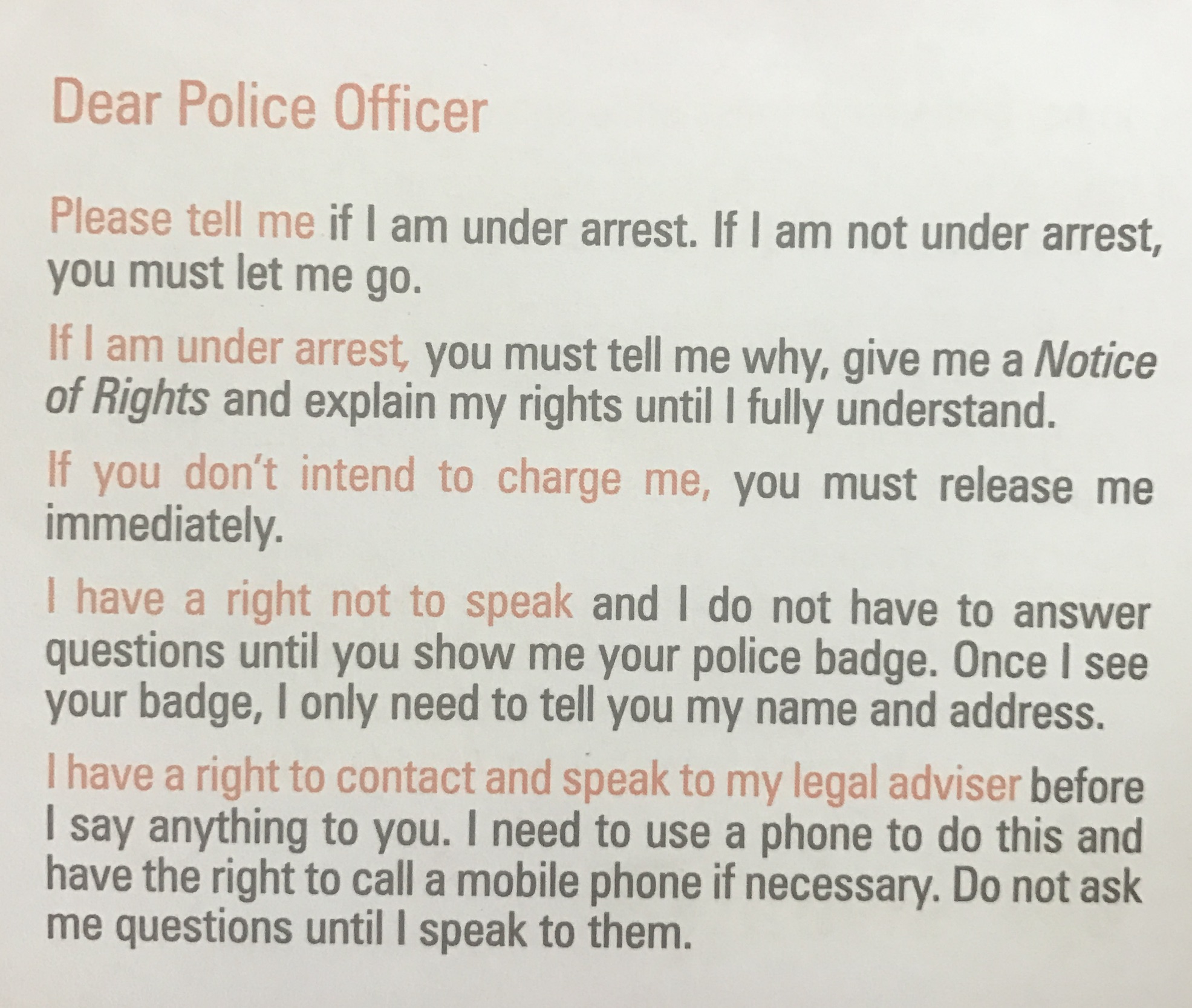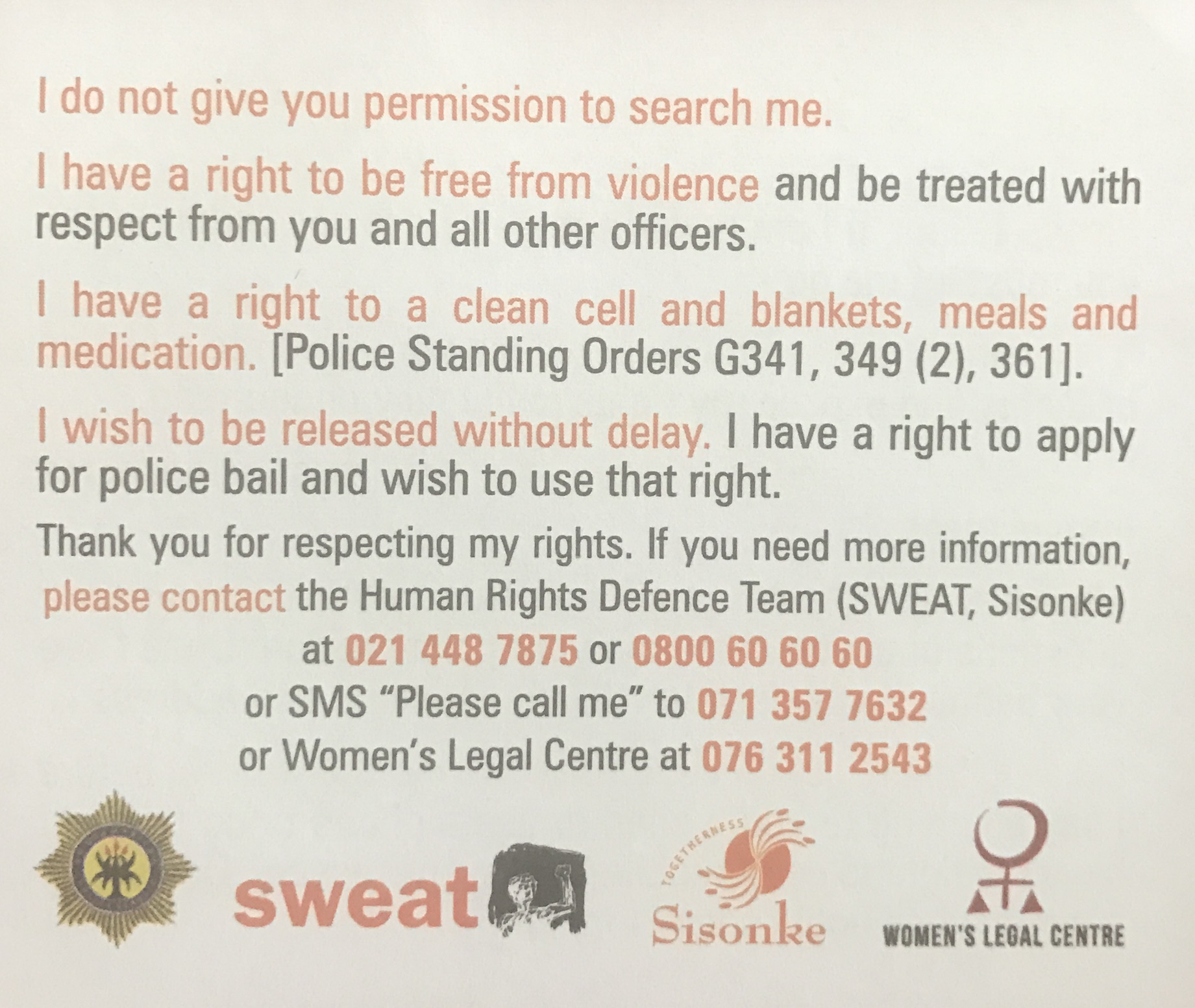
The “Ask a sex worker” stall at the Grand Parade on International Sex Workers’ Rights Day 2017. Photo: Ashleigh Furlong
3 March 2017
“Ask a sex worker” read a sign above a stall on Cape Town’s Grand Parade on Friday. Members of the public approached the table, some frowning, some nervous, some curious. Smiling members of Sisonke, a national sex worker movement, welcomed their questions.
“What is this for?”, “What is it all about?”, “What are you doing?” asked onlookers.
Kholi Buthelezi, national coordinator for Sisonke, along with other members of the movement, answered their questions to mark International Sex Workers Rights’ Day, which started when, in 2001, thousands of sex workers in Calcutta, India, gathered at a festival.
“Sex workers are just human beings,” explained a Sisonke member. She said sex work is criminalised in South Africa, and sex workers are harassed and arrested by the police.
A Women’s Legal Centre (WLC) report in 2016 showed that over 400 sex workers reported cases of abuse at the hands of the police between 2011 and 2015.
Sisonke members handed out packets with condoms, information and stickers. The packet included a card for sex workers to give to police officers. On the card is information pertaining to sex worker’s rights.
“Dear Police Officer, Please tell me if I am under arrest. If I am not under arrest, you must let me go,” the card begins.
At the booth, a man said, “No condom, no sex.” Buthelezi replied, “Yes, you got it!”
“Do they [sex workers] do it for money?” asked an onlooker.
“They do,” said Buthelezi.
Another man said that as a Christian he is against sex work. Buthelezi told him about Sisonke’s work with faith-based organisations. The man walked off, unconvinced.

